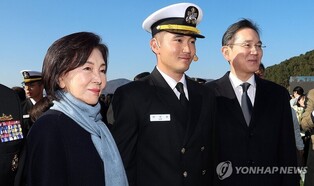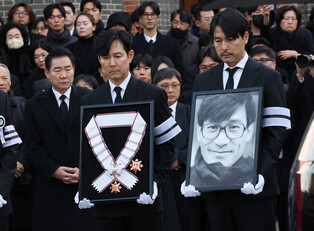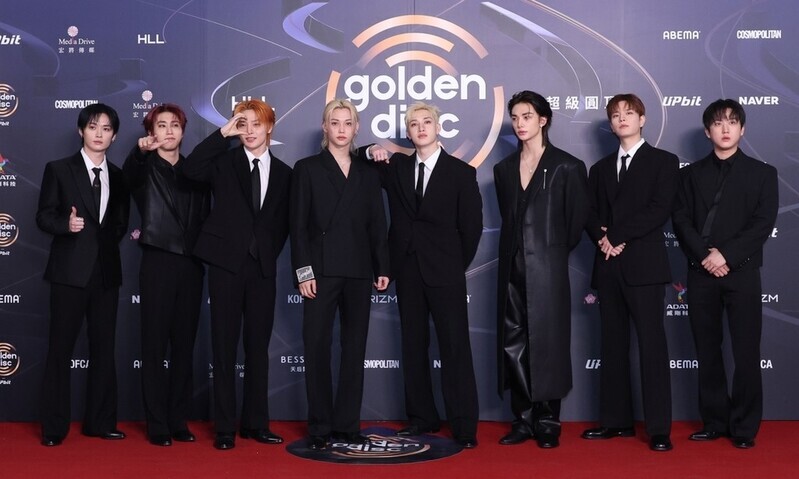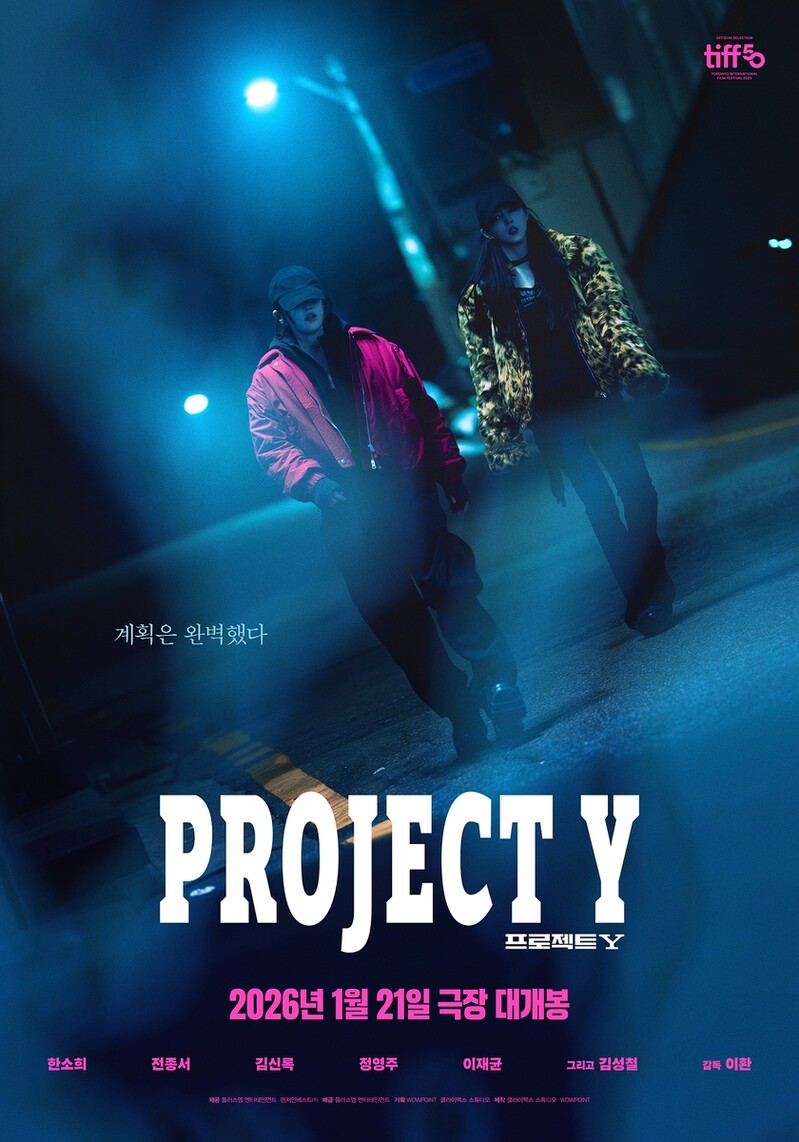*Editor’s note: The number of global Hallyu (Korean Wave) fans is approaching approximately 225 million, according to the 2024 report by the Korea Foundation. The surge in fans marks the dawn of the "Digital Silk Road" era, where communication transcends the limitations of time and space, enabling real-time interaction across the globe. Truly, we are in the era of "Hallyu 4.0."
Suk Soo-sun's Design Management Story: Design Strategy in the Age of AI (1)
Contributed by Suk Soo-sun (professor at Yonsei Graduate School of Communication & Arts)
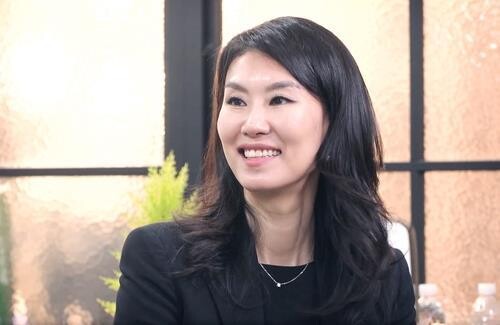
The current status of foreign tourists visiting Korea reveals significant changes in various aspects. The number of foreign visitors has been increasing every year, and in 2019, more than 17 million people visited Korea.
Due to the COVID-19 pandemic in 2020, there was a sharp decline in the number of tourists, but fortunately, with the easing of quarantine measures, tourism resumed in 2022 and 2023, and the number of foreign tourists has gradually recovered. From January to October 2024, the accumulated number of visitors reached 13.74 million, marking a 54.7% increase compared to the same period last year, and reaching 94% of the number for the same period in 2019, showing a 30.1% increase from the previous year.
This result indicates that the number of foreign visitors is recovering rapidly, returning to 97% of the level in the same month of 2019, clearly proving Korea's fast recovery in tourism.
Among the foreign tourists visiting Korea, China and Japan make up a significant portion, clearly reflecting the high share of Asian tourists. Additionally, countries like the United States, Taiwan, and Hong Kong have also established themselves as important markets, exerting a great influence on the Korean tourism industry.
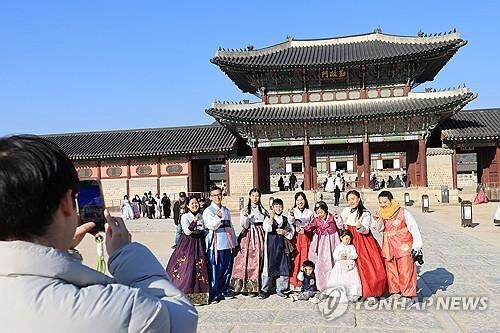 |
| ▲ Foreign tourists take commemorative photos at Gyeongbokgung Palace in Seoul on Dec. 19, 2024. (Yonhap) |
Recently, the trend among foreign tourists has shifted towards more individualized tourism, with a focus on personal preferences and interests, mainly driven by the MZ generation. With the growing influence of K-Culture, tourists' nationalities interested in Korea have diversified, leading to more segmented marketing and personalized services.
One notable change among foreign visitors is their growing interest in experiencing Korea's diverse culture. They enjoy unique attractions such as convenience store lunches, K-food, and cultural experiences.
In particular, as the influence of K-pop and K-dramas increases, there is growing interest in related content, and the demand for tourists visiting Korea continues to rise.
Tourism patterns are also changing. Foreign tourists, primarily from Seoul, are exploring historical sites, modern shopping districts, and beautiful natural landscapes, eager to experience the everyday culture they encountered through K-content.
The development of digital technology has made it easier for tourists to access information through online booking systems and mobile apps, enabling them to plan their trips more conveniently.
Sharing information and reviews on social media significantly influences the choices of tourists.
Foreign visitors are primarily focused on shopping, food, and cultural experiences, and are deeply immersing themselves in the charm of Korea. The interest in Korean culture and daily life experienced through K-content highlights the need for the Korean tourism industry to actively seize these opportunities.
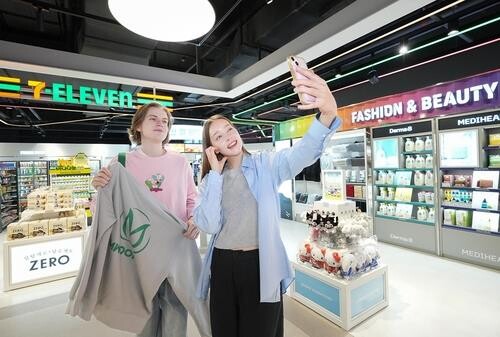 |
| ▲ Seven Eleven has created five distinct spaces in a 80-pyeong area of the Dongdaemun Shopping Complex 'Dondong', including a 'Fashion and Beauty Zone', a 'K-Food Code', a 'Seven Select Zone' offering private label (PB) products, an 'Experience-based K-Culture Zone', and a 'Liquor Museum' specialized in alcoholic beverages. Photo courtesy of Seven Eleven. (PHOTO NOT FOR SALE) (Yonhap) |
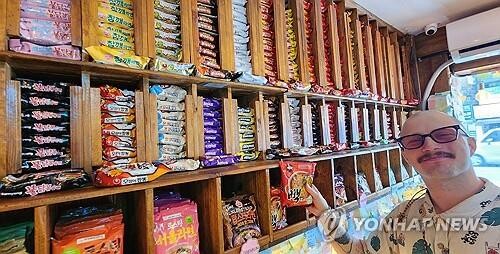 |
| ▲ A foreigner selects ramen at a convenience store in Seoul on Aug. 6, 2024. On this day, the Ministry of Agriculture, Food and Rural Affairs announced that Korea's agricultural and food exports reached a record high of 7.77 trillion won from January to last month. Among the items, ramen accounted for the largest share with 959.7 billion won. (Yonhap) |
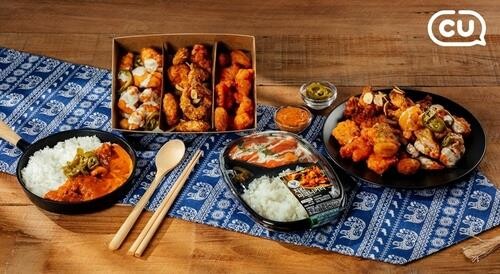 |
| ▲ This image, provided by BGF Retail, shows Halal-certified instant meals made with halal-certified ingredients. (PHOTO NOT FOR SALE) (Yonhap) |
(C) Yonhap News Agency. All Rights Reserved

















